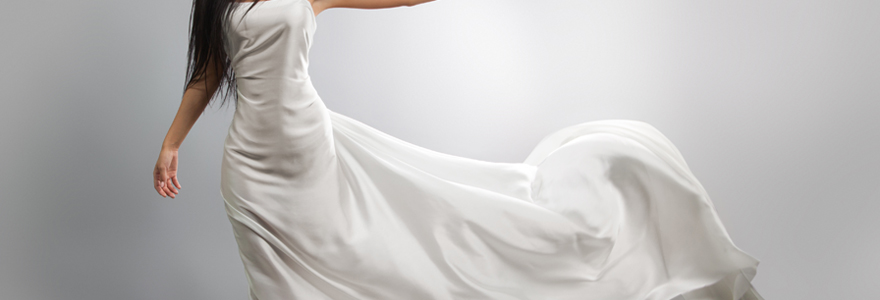What's 'ethical fashion'? You could say that it's a type of catch-all term that covers a range of concepts and issues. The fashion industry is a profitable one for the most part. But it generally involves the exploitation of workers in poorer countries. It's also heavy on the environment. It's one of the biggest polluters after the oil and petrol industry. It is known to be wasteful of the world's precious resources. As if that wasn't enough, it can be exploitative of animal life too. Many of us see it as a fun, happening industry that makes life more enjoyable and happy. Yet it has a dark side. That's somewhere most of us wouldn't want to visit. Yet now, we have the concept of the more human and eco-friendly fashion industry. The concept of 'sustainable fashion' is becoming not only known but appreciated. Here's an article that talks about ethical fashion. It discusses whether the appreciation of the concept is a good thing.
It's Not About Designer Safety Pins
The concept of ethical sustainable fashion as we know it today, began back in the 1970s. The punk movement thumbed its collective nose at the high fashion world. Ripped jeans and t-shirts held together by safety pins sent out a strong message. The problem was, the high-fashion world embraced the trend. It turned the concept on its head. Nowadays, you can buy your jeans ripped in all the right places. The safety pin even became a high fashion item. Remember Liz Hurley's iconic safety pin dress? That wasn't supposed to happen. The truth is, you can start a fashion revolution in your own home. All you have to do is refuse to be a slave to the industry. You may have the money. That doesn't mean you should throw out last year's wardrobe and buy the latest designer duds. Most people don't have that kind of money anyway. So the summer comes around and you need t-shirts. Why buy new ones if last year's still fit? If you're tired of wearing the same old tees, you could swap with friends. If you like dress-making or knitting, there are endless recycling possibilities. Rip up old sweaters and knit something new. Second hand shops have always been around. They've been lifesavers for those on a budget. They're also a treasure trove for fashion recycling.
Keep the Ethics in Mind
As mentioned, there are several ethics that drive the ethical fashion industry. They are as follows:
Fair treatment of workers: When you're considering buying products from a particular brand, whether or not it's a fashion brand, you must check where the products are made and if the workers are properly paid. Environmental sustainability: You need to ask yourself if the materials in the products are recycled. If not, are they organically and sustainably grown? Does the company that produces these goods give back to the environment? Consideration for animal life: Were any animals hurt or killed in the preparation of these products? If so, we mustn't consider purchasing these products. That's like getting blood on your hands. If you're considering buying from a particular brand, check whether it lives up to these principles.
Slow Fashion
Slow fashion is about sustainability. It makes you ask yourself if your clothes are recycled? Or at least if they're recyclable. Remember, ethical or sustainable fashion doesn't start and finish with designer labels. It begins and ends with people. You can start a revolution from your bedroom and change the world.-
